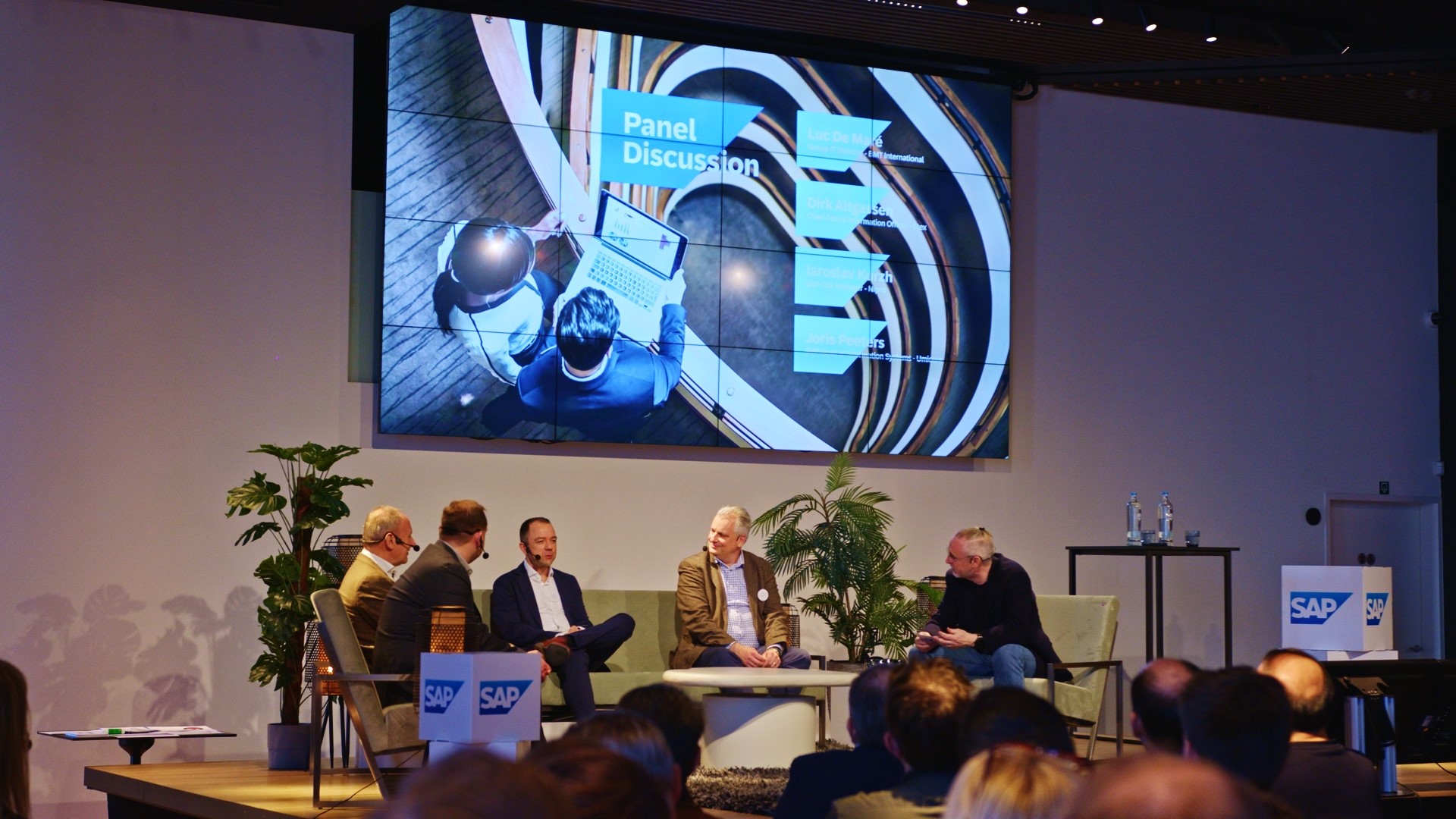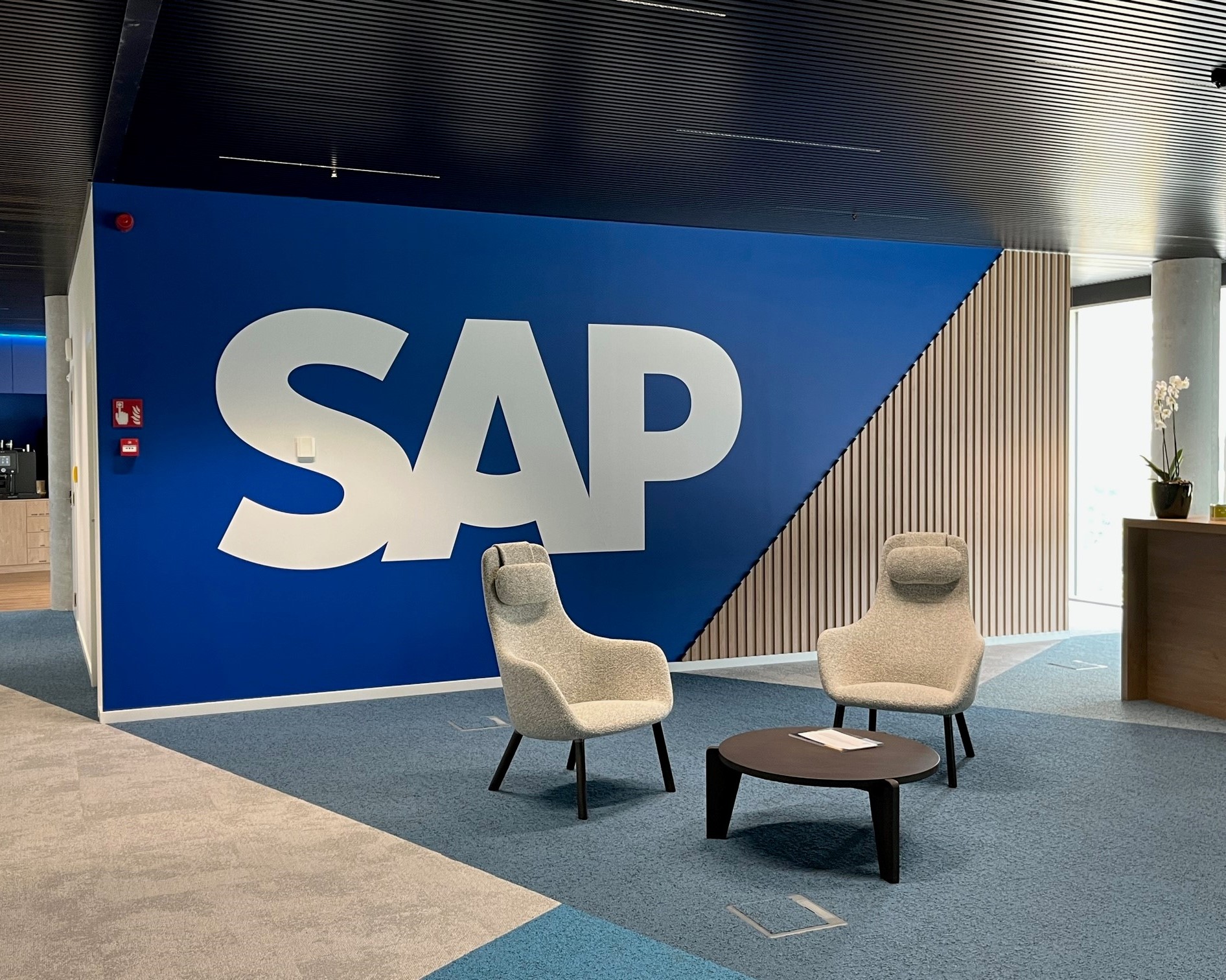During the Innovation Day event, we had the privilege of hosting Belgian business leaders who shared their experiences and insights from their digital transformation journey on stage. We had the honor of welcoming Luc De Maré from BMT, Dirk Altgassen from Etex, Iaroslav Korzh from Nipro and Joris Peeters from Umicore. It’s time to engage in a conversation with Paul Saunders, SAP Cloud ERP Evangelist, who moderated the discussion.
Paul, these are intriguing names representing diverse companies operating in various industries, each facing its unique set of challenges…

When I engage with companies, it’s common to hear them assert their uniqueness, claiming their operations are too complex for standardization. However, the reality is that a significant portion—around 75 to 80%—of their activities align closely with those of countless other companies worldwide, considering factors like industry, size, and geography. What truly distinguishes a company is its ability to effectively deliver on its core business objectives. How do you achieve your business value at the end of the day?
Business leaders constantly face a myriad of challenges. The customers we showcased highlighted priorities such as enhancing profitable partnerships, optimizing their IT infrastructure to leverage data effectively for business purposes, and maximizing efficiency across all facets of their operations. Furthermore, some businesses must adapt to evolving landscapes, each characterized by unique visions, partnerships, and requirements. The ability to adapt becomes paramount in seizing new opportunities for expansion and securing a strong position in the market.
In terms of the transformation process itself, how did they align the various departments within the business? How did they reach the consensus that transformation was necessary?
For some, navigating the transformation process has proven to be a tremendous task, and it continues to present challenges. Different divisions within the organization acknowledge the need for transformation, yet they hold divergent visions, prioritize different initiatives, and progress at varying paces. Their strategy involves striving to maintain uniformity in the foundational system, but this remains challenging. Not all business leaders share equal conviction regarding the timing and cost-effectiveness of the transformation.
Every transformation project encompasses elements of people, processes, and technology. When these components harmonize, success is attainable, but misalignment poses significant obstacles, especially when dealing with diverse business leaders. The challenge lies in articulating the rationale and timing of the transformation to the board effectively.
Also, the why and the when are crucial aspects to consider. Timing is particularly significant as any transformation, especially within IT, entails costs. Thus, it’s imperative to meticulously build a business case and justify to the management board why the transformation should occur at this moment.
You also mentioned Clean Core. However, not everyone was persuaded; for some, it felt more like a marketing spiel.
Indeed, that’s what adds depth to discussions like this one. Remember when I mentioned how companies often perceive themselves as entirely unique, unable to adhere to standard practices? The reality is, they all have common necessities like tax obligations, accounts payable and receivable, and the desire to execute them effectively. However, these elements don’t set them apart.
The concept of Clean Core entails identifying and optimizing non-differentiating business capabilities, incorporating AI to continually enhance them, all while maintaining standardization. Differentiation occurs beyond this Clean Core framework.
Our panel members emphasized a crucial point: prioritizing the business value. In any transformation project, it’s not about IT’s or SAP’s perspective; it’s about fulfilling the genuine needs of the business. This also means having the courage to challenge the business. Asking questions like, “Do you truly need to proceed in that manner?” is essential in driving meaningful transformation.
Another subject you raised was AI. Did the panel perceive value in AI? Is it regarded as a significant component of their transformation strategy?
They all have dedicated teams focused on AI, but it’s crucial for them to demonstrate its tangible business value rather than adopting AI simply because it’s currently in vogue. They are all exploring how to harness AI capabilities effectively to enhance business outcomes.
Additionally, the discussion highlighted the significance of data. When discussing ERP, the emphasis is often on the business part of it. For BTP, the T and the P parts are great. But it’s the B part that’s really important. The most critical element for ‘Business AI’ – as we call it at SAP – is ensuring confidence in the quality of the data housed within the system of record.
The panel members offered valuable insights from their personal transformation experiences. What were the main lessons learned? What advice would they set forth to companies initiating their own transformation journey?
Well, the first one: start with why. Begin any transformation journey by clearly understanding why you’re embarking on it. Ensure it’s aligned with your business goals and objectives.
A second one would be the focus on data. Invest time and effort into building a solid foundation with your data. Establishing a standardized data model and governance framework can streamline processes and facilitate standardization across the organization.
Speak the language of the business, understand their needs, and demonstrate the value of IT initiatives in achieving their objectives. Move from reactive IT to proactive IT by fostering closer collaboration with the business.
And last but certainly not least: embrace program governance. Implement robust governance structures, such as executive steering committees and operational steering committees to ensure accountability, proactive decision-making, and alignment with strategic objectives.
I’m convinced that by adhering to these principles of alignment, data readiness, proactive IT, and effective governance, organizations can navigate their transformation journey with clarity, purpose and success.



